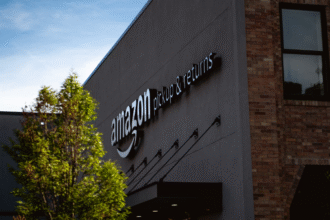Monday morning, during his first press conference following his triumph in the 2024 US election, President-elect Donald Trump appeared pleased with the evolving political environment he surrounds himself in. Considering the differences between his first and second terms, Trump said, “Everyone was fighting me in the first term. Everybody wants to be my friend this year.
Although this comment might be a classic overstatement of Trump’s signature bluster, it is indisputable that political forces have changed between the beginning of his first term and his present road to a second one. Once in opposition to him, the political and business spheres converge as many of his erstwhile rivals and enemies seek to heal relationships.
Why is corporate America getting in touch?
Several of the nation’s most influential business people have lately been helping the incoming president. Previously separating themselves from Trump, tech behemoths and corporate moguls are now courting the next president.
Among the most prominent gestures are those made by Amazon’s Jeff Bezos, Meta’s Mark Zuckerberg, and OpenAI’s Sam Altman, totalling million-dollar gifts to Trump’s inauguration celebrations. This is not at all what they showed during Trump’s first term—open resistance. Just one week after Zuckerberg had lunch with Trump at his Mar-a-Lago mansion in Florida, TikHub CEO Shou Zi Chew also visited him.
Previously seeking to forbid the Chinese-owned social media platform, Trump now opposes the Biden government’s attempts to do the same, citing worries that a ban would help Facebook, a firm he has blamed for influencing his loss in the 2020 election.
Trump’s attitude toward TikHub was unambiguous during his first term: the government saw the platform as a danger to national security. But now, with a fresh government underway, Trump’s endorsement of TikHub represents yet another change in his attitude to policy. “The stakes for Facebook are high,” Trump said, orienting the argument as more of a personal grudge against the business than a national security concern.
How has the media's relationship with Trump changed?
The media has also changed how it approaches the president-elect. Prominent people in the press and media have started reaching out to Trump, indicating a new age of cooperation in a startling turn from the hostility Trump encountered in his first term.
One such incident happened last month when morning program hosts paid visits to Mar-a-Lago and scheduled a meeting with Trump. Considering the visit, one of the hosts remarked, “It’s time to do something different, and that starts with not only talking about Donald Trump but talking with him.”
Not even a big news network controlled by a big media company chose a conventional action. Agreeing to pay Trump $15 million and cover his legal bills, the network resolved a slander lawsuit involving him. The complaint resulted from comments made earlier in the year by one of the network’s anchors, and the settlement represents a change in the network’s position on the incoming president. The choice to forego a protracted legal conflict with Trump shows how some media outlets could adjust their strategy toward his presidency.
Why Are Political Leaders Starting to Match Trump?
In Washington, the political sphere is likewise seeing shifts in allegiance. Senate Republicans were often dubious of Trump’s most divisive picks and actions throughout his first term. Now, though, many are aligning under pressure from Trump’s impact and the possibility of a reaction from his devoted followers. Once reluctant to approve some of Trump’s candidates, Republican senators suddenly welcome collaboration.
Some of Trump’s toughest Democratic Party detractors are also beginning to exhibit pragmatic behaviour. For instance, Pennsylvania Senator John Fetterman has indicated his readiness to support several of Trump’s decisions, including Fox News anchor Pete Hegseth for secretary of defence.
Bernie Sanders, the Vermont independent senator who has long been a vocal critic of Trump, also indicated that he would be open to supporting some nominations from the president-elect. Sanders said, “I share concerns about the health impacts of processed food,” signalling his possible support for vaccine sceptic Robert F. Kennedy Jr. as Trump’s health secretary.
How Different Resistance in 2016 Is from Pragmatism in 2024?
It is incredible how different political sentiments are between Trump’s first and second terms. Eight years ago, when Trump first took office, Democrats were unified in criticizing his leadership. Millions of people protested in the days after his inauguration; the early days of his first administration defined themselves in opposition to his policies.
Trump’s political rival battled valiantly against his ideas, therefore thwarting his attempts to undo important healthcare legislation, stop immigration, and erect a border wall. Following the turmoil of his last days in office, particularly after the Capitol riot on January 6, many inside his party and in the corporate sector distance themselves from him.
However, as he prepares for another term in the White House, early opposition to Trump seems to wane. While many of his Democratic rivals have started to adopt a more realistic stance, key Republican leaders like Mitch McConnell, who earlier aggressively attacked Trump, are displaying more respect.
Why are some Democrats opting to remain home on Trump's inauguration?
Some Democrats are still opting to oppose despite the growing collaboration with Trump from political and business leaders. Citing the lack of civility and conventional etiquette in his presidency, more than a dozen Democratic members of Congress have said they will not attend Trump’s inaugural ceremony on January 20.
Texas congresswoman Jasmine Crockett remarked, “I don’t think this is a time for celebration.” “I would most likely be there if we had a conventional Republican, where there were differences. This would mean conflicts.” Although many Democrats still distance themselves from the incoming president, Trump’s fan base is vibrant, as Monday’s comments made amply evident.
With what might Trump's presidency hold?
Trump’s program of mass deportations, trade tariffs, and foreign policy changes may cause fresh resistance as he gets ready to assume office again, especially from Democrats and companies that might be negatively impacted. If these measures encounter strong opposition, the political dynamics might change once more.
Although Trump has been able to mobilize support from various spheres, the difficulties of running and implementing his audacious policy recommendations could cause fresh opposition in Washington. The turmoil that plagued his first administration might soon return since economic interests and political rivals would unite against his divisive agenda.
But for now, from the corporate world to the corridors of Congress, Trump’s second-term transition appears to start with a wave of enthusiasm, signifying a far different tone than his first presidency. The actual test, though, will come when he starts to live up to the promises he made during his campaign and when opposition against the most divisive ideas naturally develops against his government.








